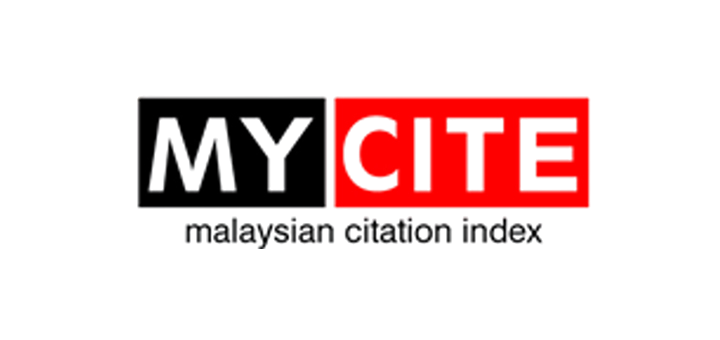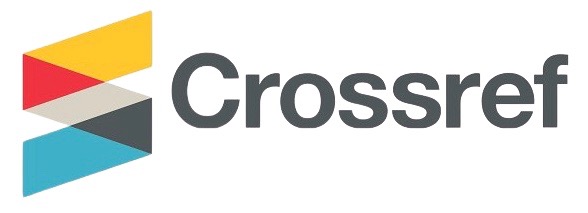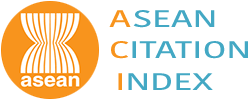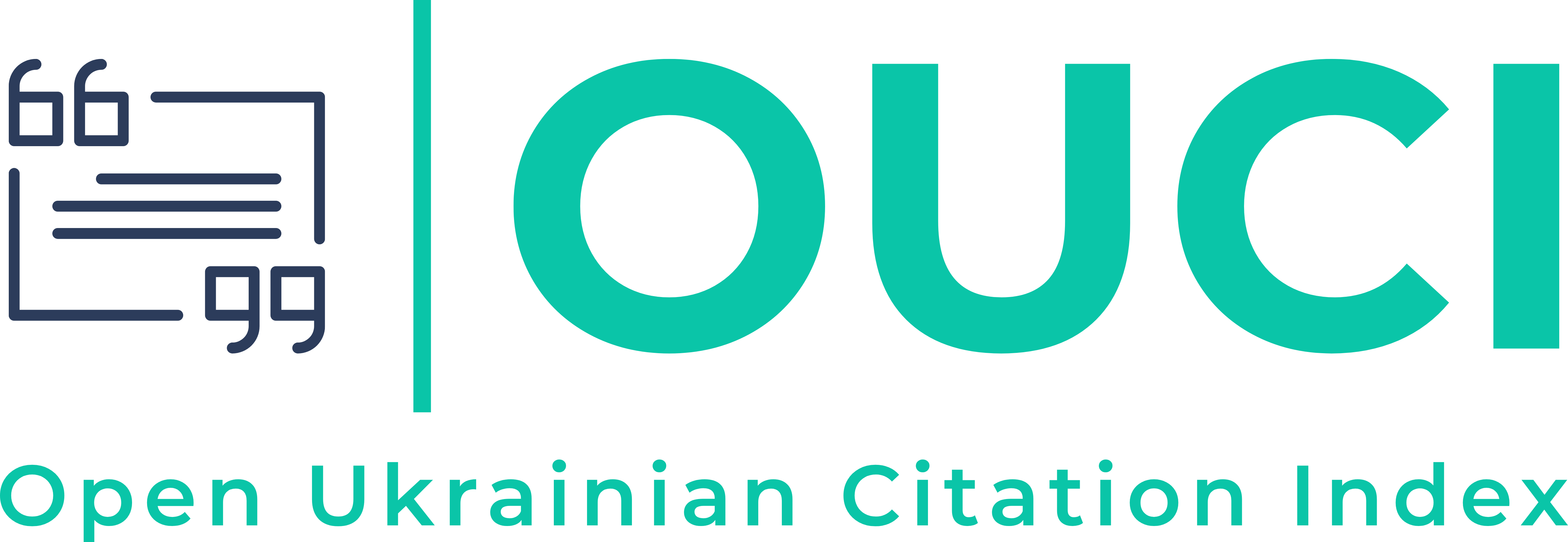Social Media Political Information Use and Voting Behavior of the Malaysian Youth
Abstract
The Malaysian lawmakers approved a legal amendment to lower the voting age from 21 to 18 years old on July 16, 2019. The new policy had empowered the very first batch of the 18 year-olds to cast their vote in the Johor state election which was held on March 12, 2022. Political analysts generally believe that what’s up in the near future would be the General Election 15 (GE15). For the first time ever Malaysians witnessed the transfer of power in the national political landscape since independence, politicians and big data analysts generally hailed the 2018 GE14 a ‘social media election’, given that social media had been used extensively by both the ruling and Opposition coalitions as major campaigning battleground, especially in their efforts to reach and sway the wired young voters. By employing an online self-administered survey questionnaire with 217 Malaysian first-time voters at a local university who rely heavily on social media for political information, this paper aims to learn how do these wired youth make use of social media platforms to learn about politics and observe voting. Findings of the current study suggest that social media political information use does not prompt the wired youth to be more likely to vote, but instead, distracts them from performing voters’ duty. On the contrary, voting behavior is more likely to be predicted by political variables such as party affiliation and political interest. Subsequently, research implications for practice and directions for future studies were discussed.
Downloads
References
Abdul Malek, A. (2019). Social media usage among rural United Malay National Organization (UMNO) youths in Kampung Gajah State Legislative Assembly, Perak, Malaysia during the 13th General Election 2013. International Humanities Studies, 6(1), 39-41.
Amna, E., Ekstrom, M., Kerr, M., & Stattin, H. (2009). Political socialization and human agency. The development of civic engagement from adolescence to adulthood. Statsvetenskaplig Tidskrift, 111(1), 27–40.
Asohan, A. (2013, May 10). GE13: A ‘social media election’ after all. Digital News Asia. https://www.digitalnewsasia.com/digital-economy/ge13-a-social-media-election-after-all/
Baek, Y. M. (2015). Political mobilization through social network sites: The mobilizing power of political messages received from SNS friends. Computers in Human Behavior, 44(2015), 12-19.
Barrett, M., & Zani, B. (2015). Political and civic engagement: Theoretical understandings, evidence and policies. In M. Barrett, & B. Zani (Eds.), Political and civic engagement: Multidisciplinary perspectives (pp. 3-31). New York: Routledge.
Bennett, W. (2017). The personalization of politics: Political identity, social media and changing patterns of participation. The Annals of the American Academy of Political and Social Sciences, 644 (1). 20-39. https://doi.org/10.1177/0002716212451428
Breuer, A., & Groshek, J. (2014). Online media and offline empowerment in post-rebellion Tunisia: An analysis of Internet use during democratic transition. Journal of Information Technology & Politics, 11(1), 25-44. https://doi.org/10.1080/19331681.2013.850464
Carillo, K., Scornavacca, E., & Za, S. (2017). The role of media dependency in predicting continuance intention to use ubiquitous media systems. Information & Management, 54(2017), 317-335.
Choi, J., Lee, J. K., & Metzgar, E. T. (2017). Investigating the effects of social media news sharing on the relationship between network heterogeneity and political participation. Computers in Human Behavior, 75, 25-31.
Curtice, J. (2010, March 3). Can politicians get young voters motivated? BBC News. http://news.bbc.co.uk/2/hi/uk_news/politics/8546366.stm
Dimitrova, D. V., Shehata, A., Strömbäck, J., & Nord, L. W. (2014). The effects of digital media on political knowledge and participation in election campaigns: Evidence from panel data. Communication Research, 41(1), 95-118. https://doi.org/10.1177/0093650211426004
Dumitrica, D. (2016). Imagining engagement: Youth, social media and electoral processes. Convergence: The International Journal of Research into New Media Technologies, 22 (1), 35-53. https://doi.org/10.1177/1354856514553899
Election Commission of Malaysia (2018, April 10). Urusan pilihan raya umum ke-14 (PRU14). http://www.spr.gov.my/sites/default/files/KM_Bil.27.2018.pdf
Free Malaysia Today. (2018, April 3). Social media, the no 1 battleground in GE14? (2018, April 3). Free Malaysia Today. https://www.freemalaysiatoday.com/category/nation/2018/04/03/social-media-the-no-1-battleground-in-ge14/
Gil de Zúñiga, H., Jung, N., & Valenzuela, S. (2012). Social media use for news and individual’s social capital, civic engagement and political participation. Journal of Computer-Mediated Communication, 17(3), 319-336. https://doi.org/10.1111/j.1083-6101.2012.01574.x
Hadi Azmi, Lex Radz, & Zam Yusa (2018, May 7). Youth vote key for Malaysian election win – But will they show up? BenarNews. https://www.benarnews.org/english/news/malaysian/youth-vote-05072018150849.html
Hudson, A. (2010, March 3). Can politicians get young voters motivated? BBC News. http://news.bbc.co.uk/2/hi/uk_news/politics/8546366.stm
Hyun, K. D., & Kim, J. (2015). Differential and interactive influences on political participation by different types of news activities and political conversation through social media. Computers in Human Behavior, 45(2015), 328-334.
Iman Khalid A. Qader, & Azizah Omar. (2015). Smart phones usage among the millennial generation in Malaysia. Journal of Scientific Research and Development, 2(14), 1-4.
Johnson, T. J., Zhang, W., Bichard, S. L., & Seltzer, T. (2011). United we stand? Online social network sites and civic engagement. In Z. Papacharissi (Ed.), A networked self: Identity, community and culture on social network sites (pp. 185-207). New York: Routledge.
Kemp, S. (2021, February 11). Digital 2021: Malaysia. DATAREPORTAL. https://datareportal.com/reports/digital-2021-malaysia?rq=digital%202021%3A%20malaysia
Kim, Y., & Jung, J. (2016). SNS dependency and interpersonal storytelling: An extension of media system dependency theory. New Media & Society, 19(9), 1458-1475. https://doi.org/10.1177/1461444816636611
Lalitha Muniandy, & Balakrishnan Muniandy. (2013). The impact of social media in social and political aspects in Malaysia: An overview. International Journal of Humanities and Social Science, 3 (11), 71-76.
Lee, C. (2017, October 5). Facebooking to power: The social media presence of Malaysian politicians. ISEAS Perspective, 2017(74). https://www.iseas.edu.sg/images/pdf/ISEAS_Perspective_2017_74.pdf
Lim, D. G. J. (2018, May 24). Social media and politics in Malaysia election [web log comment]. https://www.yourcommonwealth.org/social-development/democracy-participation/social-media-and-politics-in-malaysia-election/
Lim, Y. (2013, February 27). PM: GE13 will be Malaysia’s first ‘social media election’. The Star. https://www.thestar.com.my/news/nation/2013/02/27/pm-ge13-will-be-malaysias-1st-social-media-election
Lu, Y., Heatherly, K. A., & Lee, J. K. (2016). Cross-cutting exposure on social networking sites: The effects of SNS discussion disagreement on political participation. Computers in Human Behavior, 59(2016), 74-81.
Malaysian Communications and Multimedia Commission (MCMC). (2020). Internet users survey 2020. https://www.mcmc.gov.my/skmmgovmy/media/General/pdf/IUS-2020-Report.pdf
Malia Taibi, Siti Haslina Hussin, & Siti Zanariah Ahmad Ishak. (2017). Facebook and political cynicism: Undergraduates’ perception. International Journal of Business and Society, 18(4), 734-741.
Mitchell, A., Gottfried, J., & Matsa, K. E. (2015, June 1). Millennials & political news: Social media – the local TV for the next generation? Retrieved from Pew Research Center site: www.journalism.org/files/2015/06/Millennials-and-News-FINAL-7-27-15.pdf
Mohd Azizuddin Mohd Sani (2014). The social media election in Malaysia: The 13th general election in 2013. Kajian Malaysia, 32(2), 123-147.
Mohd Azizuddin Mohd Sani, & Zengeni, K. T. (2010, July). Democratisation in Malaysia: The impact of social media in the 2008 general election. Paper presented at the 18th Biennial Conference of the Asian Studies Association of Australia, Adelaide, Australia.
Mohd Hariszuan Jaharudin. (2014). Pilihan raya umum ke-13: Perubahan budaya politik Malaysia dan krisis legitimasi moral Barisan Nasional. Kajian Malaysia, 32(2), 149-169.
Moniruzzaman, M., & Kazi Fahmida Farzana. (2018). Malaysia’s 14th general election: End of an epoch, and beginning of a new? Intellectual Discourse, 26(1), 207-228.
Muhammad Izawan Baharin, Moniza Waheed, & Hellmueller, L. (2017). The impact of digital media platforms on the ethnic-based political system in Malaysia. Communication Research Trends, 36(3), 4-16.
Najwa Abdullah, & Amalina Anuar. (2018, May 16). What effect did social media have on the Malaysian election result? TODAY online. https://www.todayonline.com/commentary/what-effect-did-social-media-have-malaysian-election-result
Niemi, R. G., & Hanmer, M. J. (2010). Voter turnout among college students: New data and a rethinking of traditional theories. Social Science Quarterly, 91(2), 301-323.
Norhafiza Mohd Hed, & Grasso, M. T. (2020). Age group differences in political activism in Malaysia. Journal of Youth Studies, 23(6), 765-779. https://doi.org/10.1080/13676261.2019.1636948
Norshuhada Shiratuddin et al., (2016). Generation Y’s political participation and social media in Malaysia. Malaysian Journal of Communication, 32(1), 1-16.
Park, N., Kee, K. F., & Valenzuela, S. (2009). Being immersed in social networking environment: Facebook groups, uses and gratifications, and social outcomes. CyberPsychology & Behavior, 12(6), 729-733.
Ringle, C. M., Wende, S., & Becker, J. (2015). SmartPLS 3. Bönningstedt: SmartPLS. http://www.smartpls.com
Rosyidah Muhamad, Rohana Ahmad, & Jumadil Saputra (2021). Proceedings of the 11th annual international conference on industrial engineering and operations management Singapore. IEOM Society International.
Salman, A., & Saad, S. (2015). Online political participation: A study of youth usage of new media. Mediterranean Journal of Social Sciences, 6(4). https://doi.org/10.5901/mjss.2015.v6n4s3p88
Samsudin A. Rahim (2019). What can we learn about social media influence in the Malaysian 14th General Election? Journal of Asian Pacific Communication, 29(2), 264-280. https://doi.org/10.1075/japc.00033.rah
Sapiro, V. (2004). Not your parents’ political socialization: Introduction for a new generation. Annual Review of Political Science, 7(1), 1–23. https://doi.org/10.1146/annurev.polisci.7.012003.104840
Sara Chinnasamy. (2018, February 28). A Facebook election year? New Straits Times. https://www.nst.com.my/opinion/columnists/2018/02/339743/facebook-election-year
Serina Rahman (2018). Was it a Malay Tsunami? Deconstructing the Malay vote in Malaysia’s 2018 election. The Round Table, 107(6), 669-682. https://doi.org/10.1080/00358533.2018.1545941
Skoric, M. M., Zhu, Q., Goh, D., & Pang, N. (2016). Social media and citizen engagement: A meta-analytic review. New Media & Society, 18(9), 1817-1839. https://doi.org/10.1177/1461444815616221
Tan, J. J. (2022). Socio-political characteristics of the Malaysian net generation who use social media for political information: An exploratory analysis. International Journal of Politics, Public Policy and Social Works, 4(11), 15-32. https://doi.org/10.35631/IJPPSW.411002
Tapsell, R. (2013). Negotiating media ‘balance’ in Malaysia’s 2013 general election. Journal of Current Southeast Asian Affairs, 32(2), 39-60.
The Star. (2018, May 11). EC revises voter turnout figures to 82.32%. (2018, May 11). The Star. https://www.thestar.com.my/news/nation/2018/05/11/ec-says-voter-turnout-82-percent/
Tufail, S., Baneen, U., Akram, B., & Sajid, R. (2015). Impact of social media on political efficacy and vote intention: A case of educated youth. Journal of Independent Studies & Research: Management & Social Sciences & Economics, 13(1), 15-28.
Wass, H. (2005, August). Generations and socialization into political participation. Paper presented at the Politics of Participation Conference, Helsinki.
Welsh, B. (2018). “Saviour” politics and Malaysia’s 2018 electoral democratic breakthrough: Rethinking explanatory narratives and implications. Journal of Current Southeast Asian Affairs, 3 (2018), 85-108.
Wen, N., Hao, X., & George, C. (2013). Gender and political participation: News consumption, political efficacy and interpersonal communication. Asian Journal of Women’s Studies, 19(4), 124-149. https://doi.org/10.1080/12259276.2013.11666168
Willnat, L., Wong, J. W., Ezhar Tamam, & Aw, A. (2013) Online media and political participation: The case of Malaysia. Mass Communication and Society, 16, 557-585. https://doi.org/10.1080/15205436.2012.734891
Xenos, M., Vromen, A., & Loader, B. D. (2014). The great equalizer? Patterns of social media use and youth political engagement in three advanced democracies. Information, Communication & Society, 17(2), 151-167. https://doi.org/10.1080/1369118X.2013.871318
Ye, Y., Xu, P., & Zhang, M. (2017). Social media, public discourse and civic engagement in modern China. Telematics and Informatics, 34 (2017), 705-714.
Zakiah Koya, Razak Ahmad, Jo Timbuong, & Rahimy Rahim (2019, July 10). Report: Gen Z to be a game changer. The Star. https://www.thestar.com.my/news/nation/2019/07/10/report-gen-z-to-be-a-game-changer
Zhang, W., Johnson, T. J., Seltzer, T., & Bichard, S. (2010). The revolution will be networked: The influence of social networking sites on political attitudes and behavior. Social Science Computer Review, 28(1), 75-92.

















